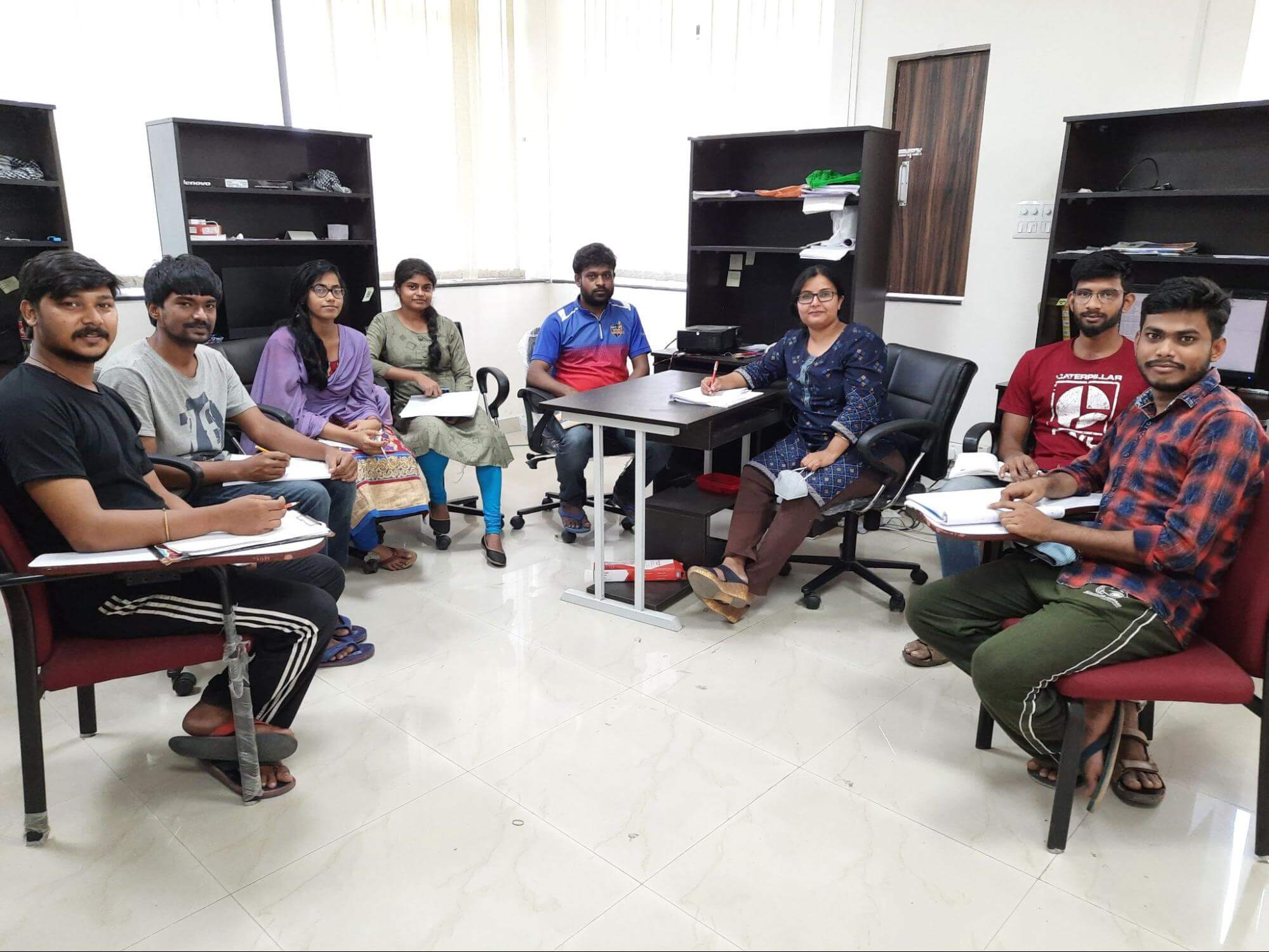Dr. Susmita Roy: On acquiring sophisticated computational tools
WIISER : Women in Science at IISER
Angel Mary CT

Dr. Susmita Roy is an Assistant Professor in the Department of Chemical sciences, IISER Kolkata. In this electronic interview, she speaks about how simple curiosity led her to choose scientific research as a way of life and other guiding philosophies that have helped her traverse this journey so far.
Tweet
1. What is your earliest memory of being hooked on to science? Why did you decide to build a career in scientific research?
I don’t remember a single one, rather remember a bunch of them when you ask. I grew up in Santiniketan which we call our Ashram. I remember me being hooked on natural science (Prakriti Path) since the day I started collecting leaves (green and dry). I remember me staring at the veins of petals and leaves, for long. I didn’t know of fractals then. I used to connect night stars like dots to make structures and visualize shapes in clouds (well, still love it). I remember extracting color from Palash (‘Flame of the forest’, a flower) before Basanta Utsav (Holi), at Santiniketan. I asked my friend, Piku, why is Palash reddish-orange in color? Piku said, “How do I know? Ask Palash.” Probably, Piku's annoying answers (with a smile) and my growing curiosity were the inceptions and I decided to explore further. I would say, those interesting questions led me to explore and understand more about science; I mean the “Truth”.
2. Why did you choose biophysical chemistry as your niche? How would you describe your research to a layman?
During my days as a Ph.D. scholar at IISc, Bangalore, I learnt the correct attitude to approach scientific problems. Trying to understand complex biological processes and different natural phenomena has excited me ever since. Although I was majoring in chemistry, I realized that scientific problems need a multidisciplinary approach, and I chose Statistical Mechanics as my weapon. I believe that a rigorous training in Statistical Mechanics and other relevant numerical approaches have equipped me well in dealing with many scientific problems of importance, including the ones in the area of biophysical chemistry.
Our research program focuses on frontline challenges in the underlying areas of physical chemistry, chemical physics, biophysical chemistry, and condensed matter physics using fundamental concepts of statistical mechanics. The primary goal of our research is to advance our understanding of complex processes regulated by biological systems and their adaptation under different environmental conditions. We experimentally develop and design computational programs and simulations to help us answer holistic questions regarding the structure and function of various biological networks, particularly when the molecular components are in motion.
3. Please share your thoughts on ‘what science uncovers remains only within the scientific community?’ How do you think we can make the general public aware of the importance of basic science research?
I don't fully agree with this statement. In this era of social media, a considerable part of what science uncovers, certainly gets popularized. The part which doesn't is mostly because of the scientific language and jargons. To overcome such barriers of communication, Prof. Satyendra Nath Bose founded Bangiya Bijnan Parishad in 1948. I can name several other positive enthusiasts of recent times who share science innovations in their mother tongue. For those who are interested (at least in Bengali), I am sharing for them the following link: https://indiabioscience.org/columns/indian-scenario/bigyan-org-in-a-science-outreach-Platform-by-researchers-in-bengali. There are many such sources.
4. Did you have any preconceived notions about the biased approach towards women in science, and did that change once you explored your career in science? What were the biggest obstacles you had to overcome as a woman in science?
No. I didn't.
The biggest obstacle I often see is within me. My hesitation, my fear, my weaknesses, my lack of self-reliance, my expectations of unforeseen misery, and sometimes my silence. Not only as a woman, as a human, I believe, it’s very important to do routine self assessment to recognize your own obstacles to get better and do better.
5. What changes, if any, are required in academia for it to be a more attractive career path for women?
The foremost change required is to develop a determined mindset of the person who wants to make a career in academia. If extra boost comes from peers/mentors and above all, family members, then the path becomes a little smoother. Being raised with Tagore's educational philosophy, I would conclude by sharing his Bengali quote translated in English:
"Hesitation is another name of defamation.
Restrain yourself from being gloomy in expectation of unforeseen misery.
Free from fear, unleash strength, win over yourself.
Save the weak, shove evil,
Never consider yourself unprotected and feeble.
Free from fear, self-reliance must not be a hindrance.
Humbly and silently wish to offer your life –
Should ethics warrant with a conch blow.
Free from fear, express your toughness in difficulties certain."
This electronic interview was coordinated and conducted by Angel Mary CT and Arunita Banerjee for Cogito137.
Angel Mary CT is a third-year student pursuing integrated BS-MS at IISER Kolkata. She harbours a child-like curiosity towards most things and is interested in interdisciplinary research and science communication.
signup with your email to get the latest articles instantly